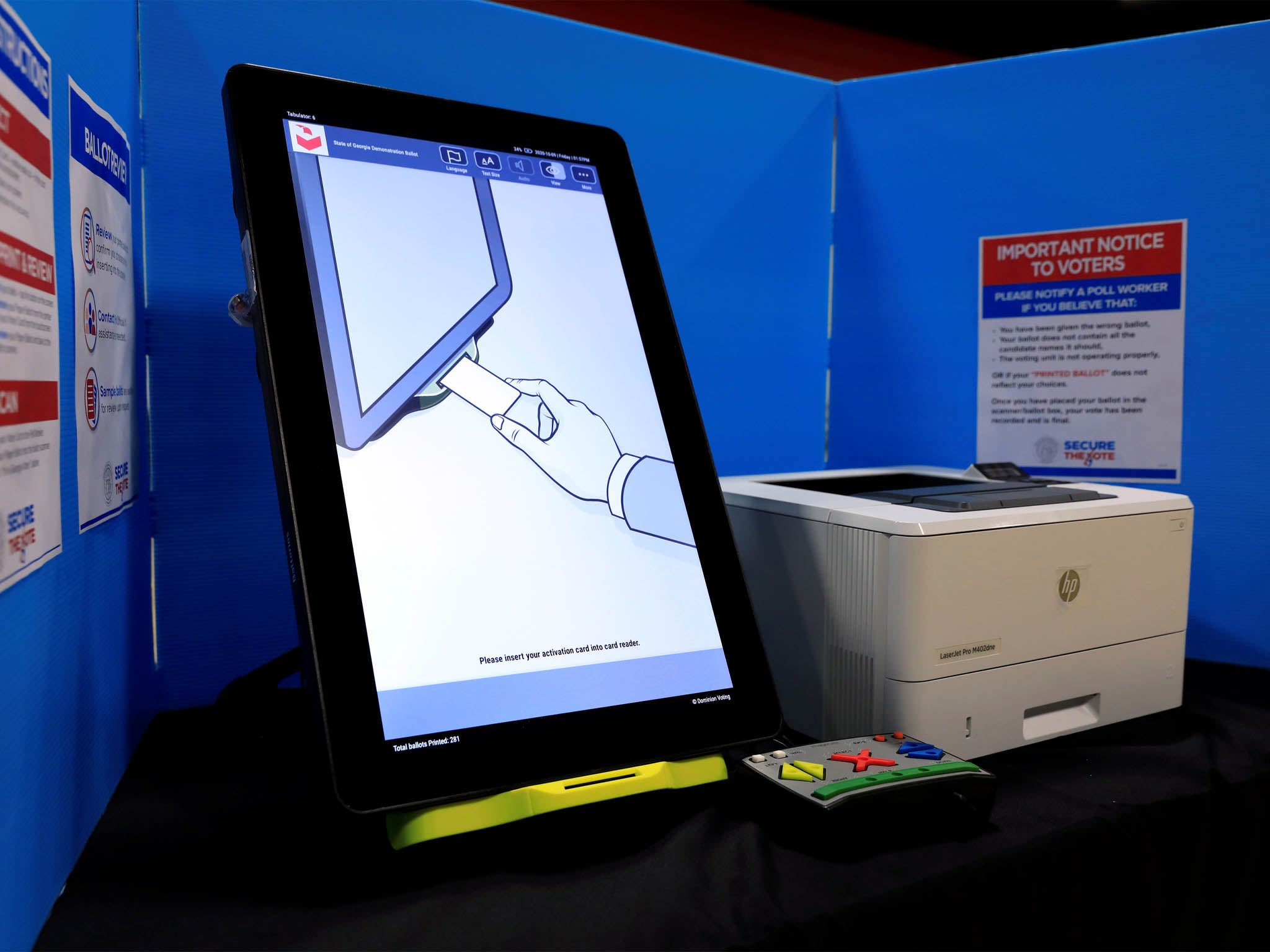Georgia judge won't order immediate switch to hand-marked ballots after challenged by activists
Voting integrity activists said voters cannot be confident their vote is accurately counted in current system

Your support helps us to tell the story
From reproductive rights to climate change to Big Tech, The Independent is on the ground when the story is developing. Whether it's investigating the financials of Elon Musk's pro-Trump PAC or producing our latest documentary, 'The A Word', which shines a light on the American women fighting for reproductive rights, we know how important it is to parse out the facts from the messaging.
At such a critical moment in US history, we need reporters on the ground. Your donation allows us to keep sending journalists to speak to both sides of the story.
The Independent is trusted by Americans across the entire political spectrum. And unlike many other quality news outlets, we choose not to lock Americans out of our reporting and analysis with paywalls. We believe quality journalism should be available to everyone, paid for by those who can afford it.
Your support makes all the difference.A federal judge on Sunday expressed serious concerns about Georgia's new election system but declined to order the state to abandon its touch screen voting machines in favour of hand-marked paper ballots for the November election.
The ruling came in a lawsuit filed by voting integrity activists that challenged the election system the state bought last year from Dominion Voting Systems for more than $100 (£76.7) million.
The activists argued that the system places an unconstitutional burden on the right to vote because voters cannot be confident their vote is accurately counted.
State officials argued that Georgia has significantly updated and secured its election infrastructure in recent years, and that the new machines have been thoroughly tested and that security measures will prevent problems.
They also said last-minute changes would be extremely costly and difficult to implement in time.
In-person early voting begins Monday and Election Day is just over three weeks away.
The new election system uses touch screen voting machines – known as ballot-marking devices or BMDs – to print a paper ballot with a barcode that is read by a scanner.
The activists' challenge "presents serious system security vulnerability and operational issues that may place Plaintiffs and other voters at risk of deprivation of their fundamental right to cast an effective vote that is accurately counted," US District Judge Amy Totenberg wrote in a 147-page order issued Sunday night.
"The Court's Order has delved deep into the true risks posed by the new BMD voting system as well as its manner of implementation," Totenberg wrote. "These risks are neither hypothetical nor remote under the current circumstances."
The activists have shown that equipment and voter registration database problems during pilot elections last year and this year's June primary and August runoff elections "caused severe breakdowns at the polls, severely burdening voters' exercise of the franchise."
But the judge noted that US Supreme Court precedent recognises states' "authority and power to regulate their elections and the voting process itself" and acknowledged that the high court has repeatedly said in recent months that lower courts must use great restraint in ordering any substantial changes so close to an election.
"Implementation of such a sudden systemic change under these circumstances cannot but cause voter confusion and some real measure of electoral disruption," she wrote.
For those reasons, Totenberg wrote, she must deny the activists' request for an immediate replacement of the new voting system with one that uses hand-marked paper ballots.
But she warned that "the vital issues identified in this case will not disappear or be appropriately addressed without focused State attention, resources, ongoing serious evaluation by independent cybersecurity experts, and open-mindedness."
"We are deeply disappointed that Georgia voters will be voting in this important election on unreliable touchscreen machines that produce results that cannot be audited," Marilyn Marks, executive director of the Coalition for Good Governance, a plaintiff in the suit, said in an email.
The secretary of state's office did not immediately respond to a request for comment Sunday.
Associated Press






Join our commenting forum
Join thought-provoking conversations, follow other Independent readers and see their replies
Comments